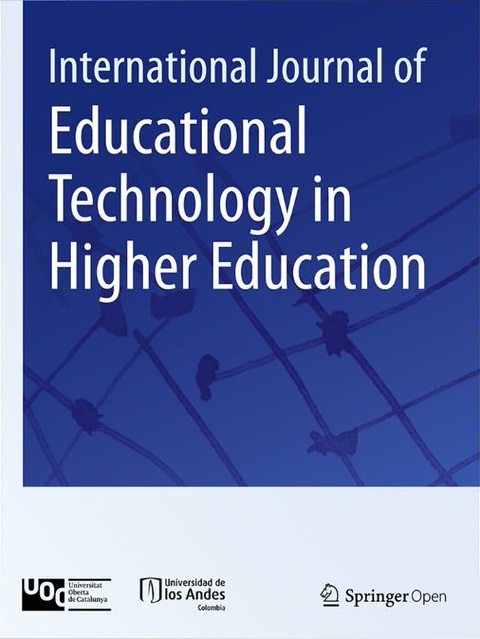Using a Survey and Discussion Forums on Students’ Satisfaction and Experience to inform the Development of a New Virtual Leaning Environment (VLE): A Data-driven Approach to Technology Use in Learning and Teaching
IF 16.7
1区 教育学
Q1 EDUCATION & EDUCATIONAL RESEARCH
International Journal of Educational Technology in Higher Education
Pub Date : 2023-10-23
DOI:10.46328/ijte.540
引用次数: 0
Abstract
The virtual learning environment (VLE) is of great importance in Higher Education as a repository for course content, communication and student support. Students’ satisfaction with the VLE may impact greatly on their engagement with the VLE itself, and, consequently, module content and learning more widely. In moving to a new VLE we wished to optimise its design for our students’ needs by determining features that impact students’ usage. As such, in this study we tested the satisfaction of psychology students with the layout used in our current VLE, Blackboard Learn (BbL). Using an online survey, students rated their satisfaction for each element of the BbL template on a 7-point Likert-type scale, from 1 (‘extremely dissatisfied)’ to 7 (‘extremely satisfied’). Eighty-seven students enrolled in the BSc Psychology (N = 68) and BSc Psychology (Sport, Health and Exercise) (N = 19) programmes completed the survey. Results showed that, overall, students were very satisfied with their BbL structure. Open-text comments indicated students appreciated the clear, organised structure, making it very easy to navigate. However, students suggested clearer labelling and greater consistency across modules would improve their learning. These findings will be used to inform the template of our new VLE.利用学生满意度和经验的调查和讨论论坛为新的虚拟学习环境(VLE)的开发提供信息:一种数据驱动的学习和教学技术使用方法
虚拟学习环境(VLE)作为课程内容、交流和学生支持的存储库,在高等教育中具有重要意义。学生对VLE的满意度可能会极大地影响他们对VLE本身的参与,从而影响模块内容和更广泛的学习。在迁移到新的VLE时,我们希望通过确定影响学生使用的功能来优化其设计,以满足学生的需求。因此,在本研究中,我们测试了心理学专业学生对我们目前的VLE - Blackboard Learn (BbL)中使用的布局的满意度。通过一项在线调查,学生们对BbL模板中每个元素的满意度进行了打分,李克特量表为7分,从1(“非常不满意”)到7(“非常满意”)。87名参加心理学理学士(N = 68)和心理学理学士(运动、健康和运动)课程的学生完成了调查。结果显示,总体而言,学生对他们的BbL结构非常满意。开放文本的评论表明,学生们喜欢清晰、有组织的结构,这使得阅读非常容易。然而,学生们表示,更清晰的标签和更大的模块一致性将改善他们的学习。这些发现将用于通知我们的新VLE模板。
本文章由计算机程序翻译,如有差异,请以英文原文为准。
求助全文
约1分钟内获得全文
求助全文
来源期刊
CiteScore
19.30
自引率
4.70%
发文量
59
审稿时长
76.7 days
期刊介绍:
This journal seeks to foster the sharing of critical scholarly works and information exchange across diverse cultural perspectives in the fields of technology-enhanced and digital learning in higher education. It aims to advance scientific knowledge on the human and personal aspects of technology use in higher education, while keeping readers informed about the latest developments in applying digital technologies to learning, training, research, and management.

 求助内容:
求助内容: 应助结果提醒方式:
应助结果提醒方式:


